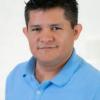
Fernando Orduña-Cabrera
Research Scholar
Exploratory Modeling of Human-natural Systems Research Group
Advancing Systems Analysis Program
Research Scholar
Novel Data Ecosystems for Sustainability Research Group
Advancing Systems Analysis Program
Contact
Biography
Fernando Orduna-Cabrera is a research scholar jointly associated with the Novel Data Ecosystems for Sustainability and the Exploratory Modeling of Human-Natural Systems research groups of the IIASA Advancing Systems Analysis Program. He studied Computer Science Engineering and obtained a Master of Science in Computer Science at the National Technological Institute of Mexico (NTI) and a PhD in Artificial Intelligence at the Polytechnic University of Catalunya, Spain. He was a titular professor at the NTI campus in Cajeme, Mexico, for 15 years. He was the coordinator of the Advanced Research Center and a member of the postgraduate council board. The General Direction University Education awarded him a researcher and teaching profile in Mexico.
He has experience developing machine learning algorithms and is collaborating with the Food, Agriculture, Biodiversity, Land-Use and Energy (FABLE) Consortium, developing tools to manage, analyze, and improve the FABLE tools, including the Scenathon and FABLE Calculator. He is also collaborating on the development of SmartLinker Architecture to harmonize commodities trade in the FABLE Consortium. The new developments are in the field of deep learning. He recently introduced deep learning methods in remote sensing for crop-type recognition. His research interests include machine learning, clustering, deep learning, multi-agent systems, and decision support systems.
Last update: 06 APR 2023
Publications
FABLE (2024). Transforming food and land systems to achieve the SDGs. In: The SDGs and the UN Summit of the Future. Sustainable Development Report 2024. Eds. Sachs, J.D., Lafortune, G., & Fuller, G., pp. 50-82 Dublin, Ireland: Dublin University Press. ISBN 978-0-903200-18-9 10.25546/108572.
Orduña-Cabrera, F. , Sandoval-Gastelum, M., McCallum, I. , See, L. , Fritz, S. , Karanam, S., Sturn, T., Javalera Rincón, V. , & Gonzalez-Navarro, F.F. (2023). Investigating the Use of Street-Level Imagery and Deep Learning to Produce In-Situ Crop Type Information. Geographies 3 (3) 563-573. 10.3390/geographies3030029.
Javalera Rincón, V. , Mosnier, A., Obersteiner, M. , Orduña-Cabrera, F. , & fableconsortium (2023). Scenathon 2019. 10.5281/zenodo.7969574.
Javalera Rincón, V. , Obersteiner, M. , Mosnier, A., fableconsortium, & Orduña-Cabrera, F. (2023). Scenathon 2020. 10.5281/zenodo.7969716.
Javalera Rincón, V. , Obersteiner, M. , Mosnier, A., Douzal, C., Orduña-Cabrera, F. , & fableconsortium (2023). Scenathon 2021. 10.5281/zenodo.7969743.